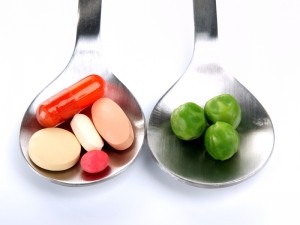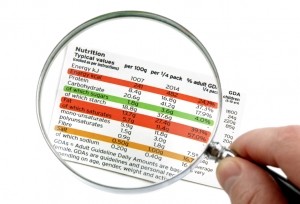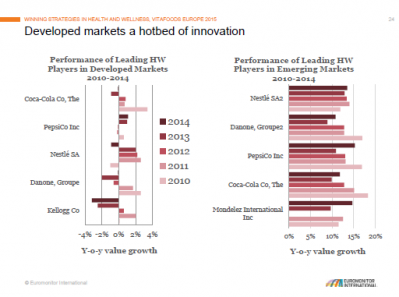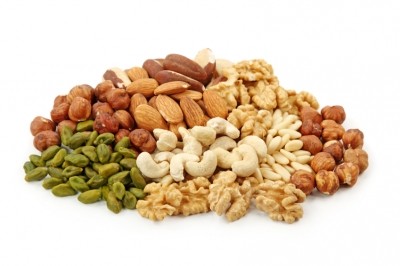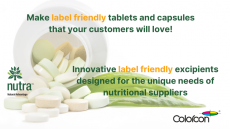Special edition: functional foods
Functional Foods: The end of the processed foods era?

The purpose was to develop healthier foods, for healthier people and healthier business. The last was what really drove and still drives the interest. The dream of the miracle product was exemplified by cholesterol lowering Benecol and pro.activ that seemed to defy gravity when they could charge triple the price of a typical spread.
The opportunity for the food industry was for added value products in commodity categories and for the ingredient industry to commercialise scientifically proven ingredients. It was even an opportunity for pharma companies like Novartis to launch brands like Aviva in to the food market.
The food or drug fug
For the western consumer the health trend had just started and the regulators had the challenge of keeping food and medicine apart.
This was in the late 80s and early 90s when the world was still divided in Food or Medicine. A division that was guarded by Food and Pharma regulations that prohibited foods from claiming any kind of health effects beyond simple prevention of deficiency of certain key nutrients as vitamins and minerals. To even breathe that foods could have any curing effect was as close to a criminal act.
So the first functional foods had to take up the fight and claim its right to have health benefits. In many countries enforcing liberalisations of the regulations. So the future of Functional Foods seemed bright…
But…successes were few. The number of failures soon outgrew the lucky few like Benecol now grouped together with the probiotic little bottles of Yakult and Danone Actimel. Not to mention Danone’s probiotic spoonable yoghurt Activia.
It started to become clear that the dream of miracle products was just a dream. And it only seemed to work when the product was a direct replacement of a medicine like Benecol or a liquid supplement like the little probiotic bottles. Except for Red Bull, which delivered an immediate benefit in a caffeine-derived energy boost.
Superfoods
But the genie was out of the bottle...health was a growing trend among consumers and the opportunity to add value led to the next strategy that emerged after functional foods: Superfoods. Now the focus was not on the ingredient but on the foodstuff itself and science was now used to support anecdotal health that some foods were born healthier than other foods. Suddenly we were all talking about Cranberries and Pomegranate and brands like Ocean Spray and Pom Wonderful were the heroes of the day.
With the Superfoods came the idea that Natural foods were healthier than processed foods and no one hit the trend better than Innocent who claimed that their smoothies came “from a tree – not a laboratory” and that it contained “nothing but nothing but fruits”. They also added ethics to the success by claiming that they only crushed fruits (not workers).
Free-from…processed foods?
By this time the debate was not about what you should add to foods to make them healthier. On the contrary it was all about what you should remove. Free-from became the strongest growing ingredient category and is today the single biggest ingredient in new launches. Lactose-free, Gluten-free are still growing together with other messages targeting consumers increasingly worried that the foods they eat are not good for them.
This at a time when global consumers biggest health concern spells PROCESSED FOODS.
And the disbelief in what the industry offers grows when even low-fat and light products are starting to be seen as unhealthy. Full-fat products are gaining in popularity. “Butter is spreading again” as new science contradicts old truths that we shall avoid fat.
The age of nutrition
So what is the reason for this change? Well to make it simple: Consumers have learnt about nutrition and the more they learn the more they can chose the foods, diets and nutrients that they believe will give them the best quality of life. And once consumers have started to learn about nutrition they will question your products’ nutritional values. A health claim will not help you if your product isn’t nutritious.
Today many of my food clients find themselves fighting already lost battles with their brands because their whole category is under fire. Cereals, bread and juice are examples of categories fighting to rebuild the nutritional relevance, not to mention the whole soft drinks industry. Even holy cows like dairy is recently questioned on its nutritional merits compared to non-dairy alternatives.
Functional foods started with the ambition of adding health benefits to processed foods. What it actually did was start an education of consumers and producers alike about the health benefits of the foods we eat and the role of different nutrients. The full understanding of nutrition is that the foods you eat today will build your body of tomorrow. You are what you eat.
The processed foods era is over – the era of nutrition is here. Are you prepared for a future where the value chain starts in the mind of the consumer?
Peter Wennstrom is the president and founder of the HealthyMarketingTeam.
